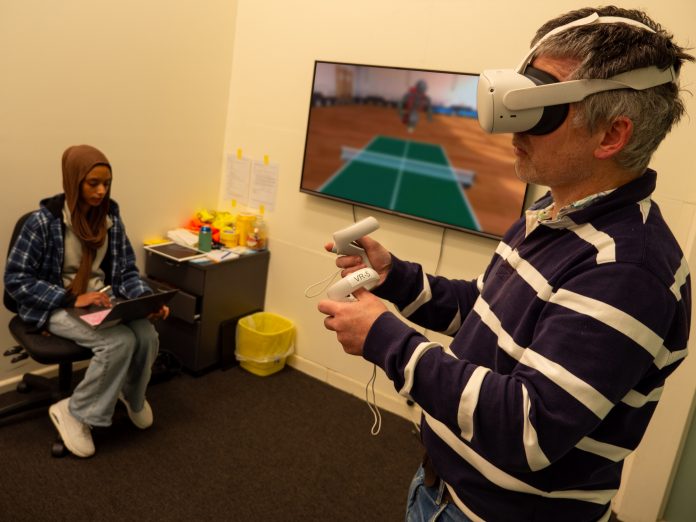Researchers are using virtual reality (VR) to encourage Australians with an intellectual disability to undertake regular physical exercise through a high-tech gaming program that builds positive exercise habits and reduces their increased risk of early-onset cardiovascular disease, stroke and heart attacks.
Working with 16 participants at the Bedford Group, Flinders University researchers Dr. June Alexander and Dr. Joyce Ramos are running a VR-based exercise program over 8 weeks to motivate participants with an intellectual disability to undertake intensive exercise routines and improve their long-term approach to physical fitness.
The program requires the volunteers to complete a 1-hour supervised session three times per week using a commercially available VR system at the Bedford Group. Each session incorporates 50 minutes of exercise using a popular game app such as Dance Central, Beat Sabre, the Thrill of the Fight, Space Pirate Trainer and a range of other games.
Flinders University researchers monitor the participants heart rate, rate of perceived exertion, and intensity volume during the trial and record the results to track their physical improvements.
With the cost of commercially available VR systems plummeting in recent years, the experts say VR technology can, for the first time, provide access to a variety of safe activities that people with disabilities are often excluded from being involved in.
Lecturer in Disability and Inclusion in the College of Nursing and Health Sciences, Dr June Alexander, says most Australians with developmental disabilities don’t meet the globally recommended minimum amounts of physical activity for good health, which significantly increases their risk of cardiovascular disease.
“The tendency for people with an intellectual disability to avoid regular exercise has been attributed to low motivation and reduced access to mainstream health and fitness services such as gyms, so the aim of this innovative VR program is to help participants overcome these barriers.
“Our exercise program will compare the overall impact of a regular and tailored VR activity against participants who don’t receive the experimental treatment.” Dr June says.








